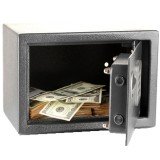Should You Allow Pets in Rental Properties?
Is allowing pets in rental properties a smart choice? Learn what are the benefits and drawbacks of renting to people with pets.
Benefits of Allowing Pets in Rental Properties
Since many landlords are unwilling to accept tenant with pets, allowing pets will instantly expand your potential pool of tenants. There is also a small group of landlords who prefer renting to pet owners because they find them to be more responsible.
Another benefit of renting to people with pets: Since it's harder for them to find a new landlord, they're more likely to stick with you for a longer period of time. This translates to lower turnover rates and more stable rent payments for you.
If you're concerned with damages, stains and odors caused by pets, you can ask your tenant for pet deposits and non-refundable pet fees. You can deduct all repair and cleaning expenses caused by pets from this deposit.
In addition to the pet deposit, you can also ask for higher rents if your tenants are keeping pets in rental properties. Most tenants with dogs and cats are willing to pay more rent, as long as the rent increase is reasonable.
So what is a "reasonable" rent increase? There is no fixed standard but a 5% rent increase is considered to be reasonable in most cases.
The law allows tenants to keep pets in certain scenarios. If you rent to government subsidized tenants in the United States (e.g. Housing Choice Voucher or Section 8 renters), you must allow disabled tenants to keep pets that help cope with their disabilities.
Drawbacks of Allowing Pets in Rental Properties
Untrained pets have the potential to cause a lot of destruction and damage to your rental property. If they are not toilet trained, they can also leave nasty odors and stains inside the house as well. Certain types of fixtures and furnishings are especially susceptible to pet damage, such as hardwood floors, carpets, curtains and bedding.
Constant barking, meowing or even chirping from the pets can also cause disturbance to other tenants and neighbors. The last thing you'll want is to deal with complaints from them all the time.
Some pets such as large dogs in particular may turn out to be safety hazards if the owner is irresponsible. If these dogs are left unleashed, they may possibly bite and injure other animal and human beings.
If you rent to people with dogs, you may want to ban the more dangerous dog breeds such as pit bulls, rottweilers or doberman from your rental property. To enforce a no pet policy for your rental property, you can include the following line in the lease agreement:
PETS: No dog, cat, bird, fish or other domestic pet or animal of any kind may be kept on or about the premises without the landlord's written consent.
Be sure to enforce your no pet policy before the lease begins. If you take months or years before enforcing it, you may lose the rights to remove your tenant's pets from the property.
NEXT: How Much Should You Charge for Pet Deposit?



